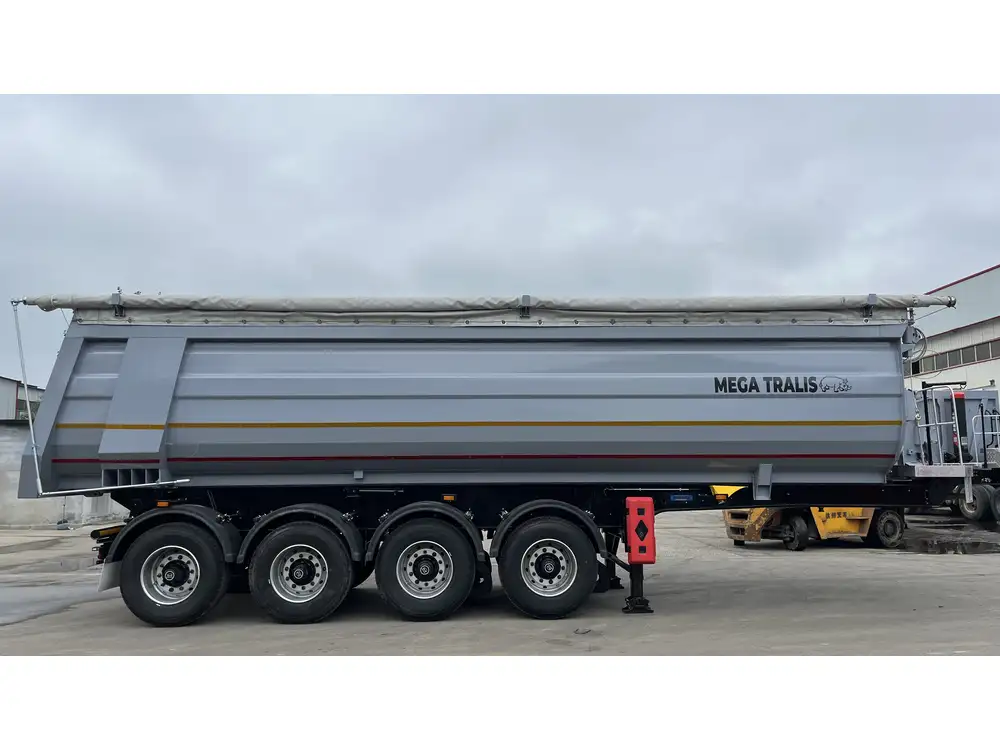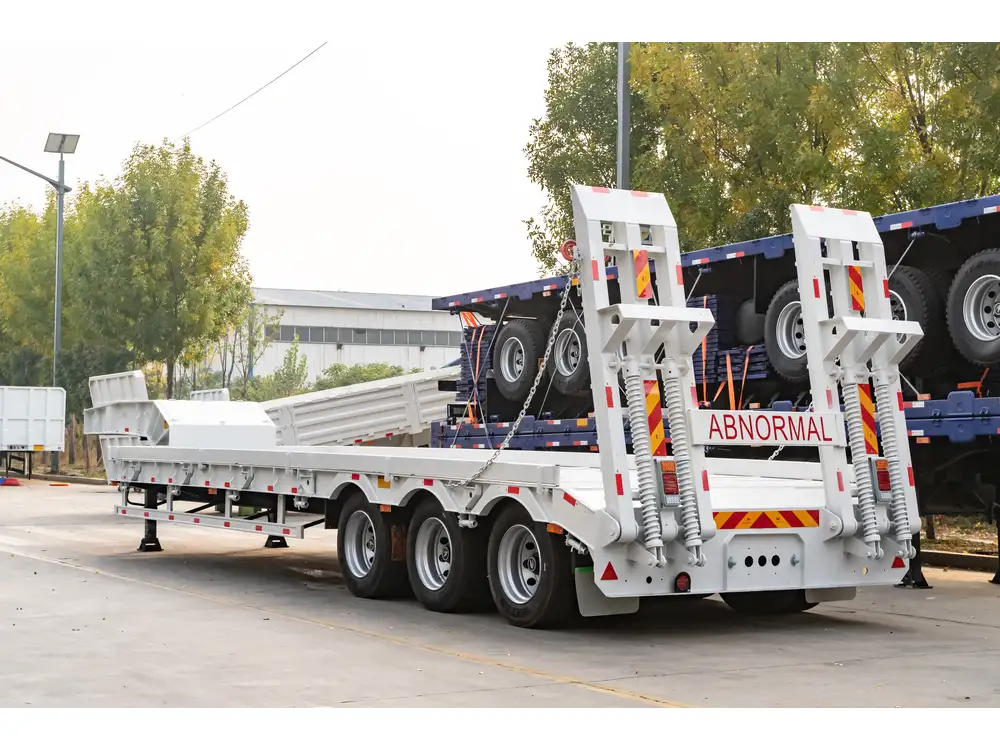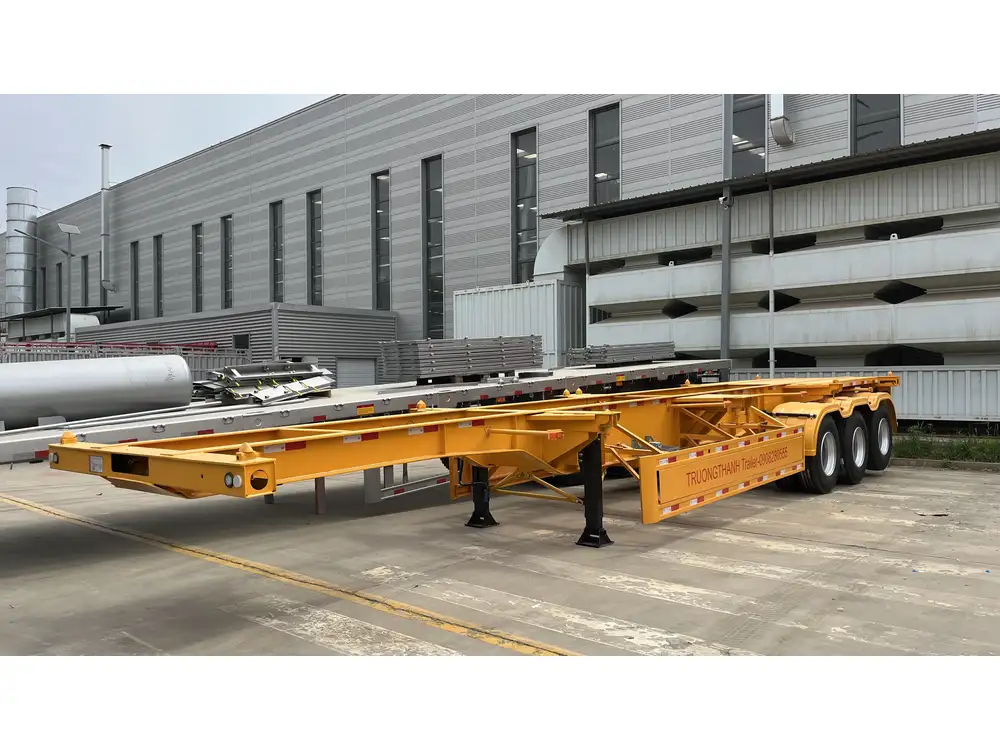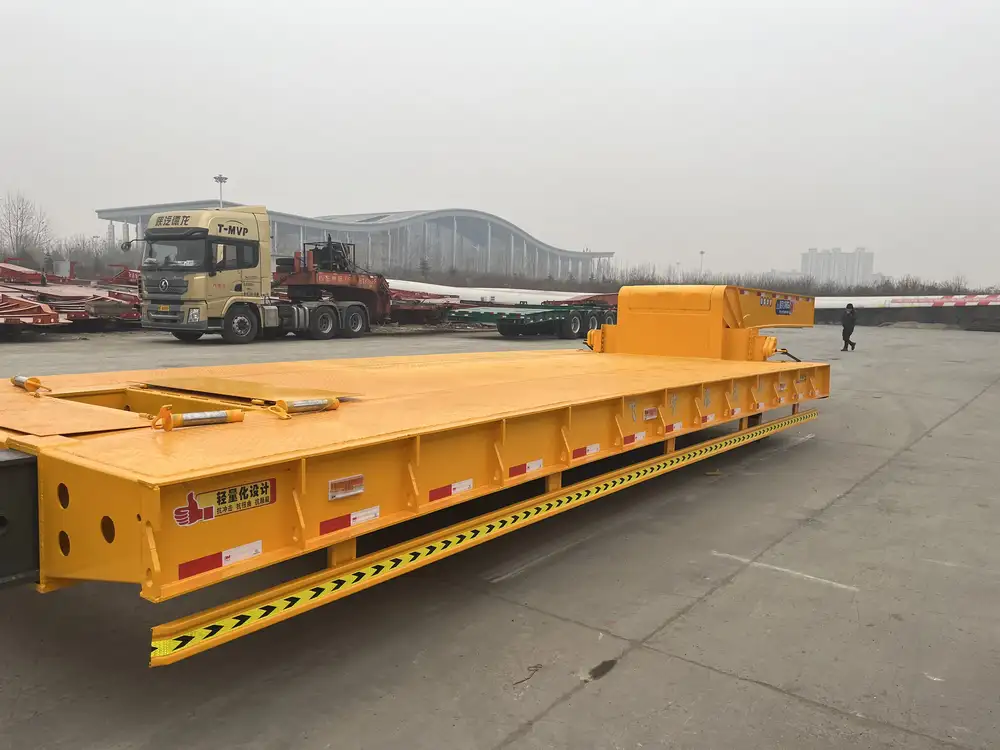What is a Self-Contained Trailer?
A self-contained trailer is a mobile living space equipped with all the necessary amenities for comfortable habitation, eliminating the need for external utilities. These trailers come complete with essential facilities such as kitchens, bathrooms, sleeping areas, and often other features like air conditioning and heating. This independence from external power sources or water supplies positions self-contained trailers as an excellent option for those who value flexibility and freedom in their travel and recreation.
Key Components of Self-Contained Trailers
Here’s a detailed breakdown of the components that make self-contained trailers appealing:
| Component | Description |
|---|---|
| Sleeping Area | Typically includes beds that convert into seating, maximizing space efficiency. |
| Kitchen | Equipped with a stove, sink, refrigerator, and storage cabinets for food supplies. |
| Bathroom | Features a toilet, shower, and sink, providing complete sanitary facilities. |
| Water System | Includes fresh water tanks and greywater tanks to manage water provisions and waste. |
| Power Supply | Solar panels or generators, enabling off-grid living and independent power usage. |
| Storage Space | Ample compartments for personal belongings, camping gear, and recreational equipment. |

Types of Self-Contained Trailers
Self-contained trailers come in various forms, catering to diverse travel and lifestyle preferences. Here’s a closer look:
Travel Trailers
Travel trailers are versatile and can be towed by a variety of vehicles. They range from lightweight models that can be pulled by a standard SUV to larger, more luxurious versions requiring heavier towing vehicles.
Fifth-Wheel Trailers
Fifth-wheel trailers provide a heightened living experience with a two-level design, seen in larger adjustments to maximize residential comforts. These trailers are attached to the truck bed and offer better stability during travel.

Toy Haulers
Toy haulers serve a unique niche, designed for hauling recreational equipment like ATVs or motorcycles. They combine living spaces with large garages, making them perfect for adventurous users.
Truck Campers
Truck campers mount directly onto the bed of a pickup truck, offering mobility and easy setup. They are ideal for individuals or couples who enjoy travels without sacrificing comfort.
Advantages of Self-Contained Trailers
The self-contained nature of these trailers provides several key benefits that draw users:

1. Independence and Flexibility
Traveling in a self-contained trailer lets users set their courses without dependence on hotel availability or potential service interruptions. The freedom to camp in remote locations enhances the appeal for those who cherish nature and adventure.
2. Cost-Effectiveness
Investing in a self-contained trailer reduces accommodation costs, especially for frequent travelers. With full amenities included, users can save money that would typically go towards hotels and dining out.
3. Comfort and Convenience
With all essential facilities on board, users can enjoy the comforts of home, including cooking meals, maintaining personal hygiene, and resting in familiar spaces.

4. Environmental Advantages
Modern self-contained trailers often incorporate eco-friendly features such as solar panels, reducing reliance on non-renewable energy sources and enabling sustainable travel.
5. Community and Lifestyle
Owning a self-contained trailer often leads one into a community of like-minded individuals. Travel rallies, camping clubs, and social media groups bring together those who share a passion for exploration and outdoor living.
Essential Features to Consider When Choosing a Self-Contained Trailer
Navigating the array of self-contained trailers can be daunting. Key features to evaluate include:
- Size and Weight: Assess towing capacities and required vehicle modifications.
- Layout: Look for designs that optimize space usage according to personal needs.
- Amenities: Consider the kitchen layout, bathroom size, and storage options.
- Build Quality: Examine materials and craftsmanship to ensure durability.
- Energy Options: Evaluate alternative energy systems and their feasibility for your lifestyle.

Addressing Common Concerns
What Maintenance is Required for Self-Contained Trailers?
Maintenance is crucial to prolonging the lifespan and usability of self-contained trailers. Here are some key maintenance tasks:
- Regular inspections of the trailer’s exterior for signs of wear or damage.
- Checking appliances to ensure they are operational and energy-efficient.
- Maintaining plumbing systems, including checking for leaks or blockages.
- Regularly cleaning solar panels to optimize energy collection.
Are Self-Contained Trailers Suitable for Full-Time Living?
The design and amenities of self-contained trailers make them suitable for longer-term living. Key considerations include:
- Monthly budget: Understand ongoing costs such as maintenance, insurance, and fuel.
- Lifestyle needs: Evaluate how well a trailer’s layout matches your living habits.
- Zoning regulations: Research legalities regarding prolonged stays in specific areas.

What Are the Costs Involved?
When budgeting for a self-contained trailer, there’s more to consider than the purchase price. A breakdown includes:
| Cost Component | Estimated Range |
|---|---|
| Trailer Purchase | $10,000 – $100,000+ |
| Insurance | $500 – $2,000/year |
| Maintenance/Repairs | $500 – $1,500/year |
| Fuel Costs | Varies depending on travel habits |
| Campsite Fees | $20 – $70/night |
How to Maximize the Space in a Self-Contained Trailer?
Space management is vital in a self-contained trailer. Here are some tips:
- Innovative Storage Solutions: Use under-bed storage, multi-functional furniture, and vertical space to maximize available room.
- Organizational Products: Optimize space with racks, bins, and portable organizers.
- Minimize Clutter: Regularly assess belongings to keep only essential items.
Conclusion: Finding the Right Self-Contained Trailer for You
Selecting the ideal self-contained trailer involves a comprehensive assessment of personal needs, travel goals, and budget parameters. By weighing the various types, advantages, considerations, and features discussed in this guide, you’ll be poised to make an informed decision that aligns with your adventurous spirit.
In embracing the self-contained trailer lifestyle, you are not merely acquiring a mode of transport—you are investing in experiences. Whether embarking on relaxing weekends or grand cross-country excursions, this choice will undoubtedly redefine your perception of travel, invigorating your wanderlust and providing a unique space imbued with memories.
Explore the possibilities today, and unlock the door to an exhilarating world of adventure, comfort, and self-sufficiency that can only be found in your very own self-contained trailer!



